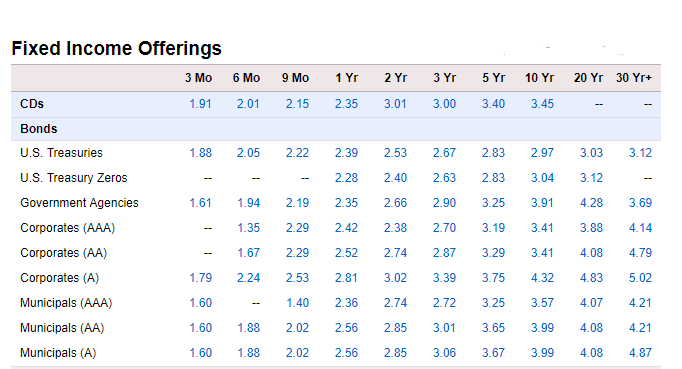When trying to save up for a house, should I make sure that money is put in a bank account and is liquid? Or do I put it into some mutual funds and take out the money when I have enough for my down payment? I am looking into purchasing a house in 3 or 4 years.
-
What's your time frame? Do you want to buy a house 6 months or 5 years from now? In general, liquid assets are better for shorter time frames, but you'll likely want that money to grow in a relatively stable investment if you don't plan to spend it anytime soon.– Nuclear HoagieCommented Jun 6, 2018 at 20:43
-
3–4 years sounds like a good candidate for CDs. Slightly risky for stocks, but more than the pittance you'd get in a savings account.– KevinCommented Jun 6, 2018 at 20:50
4 Answers
On a 3-4 year timeline you probably don't want to expose your money to much if any risk, as a downturn could decimate your pile and take a long while to recover.
Current CD rates are in the 2.25-2.8% range, I'd probably buy a 36 month CD with any savings now then pile up money in a high interest savings account and buy a 30 month CD in 6-months, repeat every 6-months with shorter term CD's until you are within a year of making your purchase.
I doesn't have to be all-or-nothing. If your time frame for buying is flexible, I'd suggest putting some money into equities (like an index fund) and the rest into CD/treasuries, ready to take out when you want to buy.
If you can stand a bit of risk, the upside of have some money in the market is substantial, especially if you can be flexible on when you want to take the money out. Yes, there is always a risk of loss, especially in the short term.
To answer your other question, when do you buy the house, just have the money in a checking account for the down payment. If you had money invested, just have everything sold and then transferred into the checking account ahead of time.
I'd open a brokerage account and ladder up short term treasuries and put the rest in a high quality money market fund. Interest from Treasuries are generally state income tax free, considering that tax preference treasuries can be preferred to CDs.
Personally, I'd stick to short term durations and I'd build up a ladder. Maybe set up a 3 month and a 6 month ladder. So you'll maintain 3 lots of 3 month treasuries and 6 lots of 6 month treasuries such that you have one lot maturing every month. Largely because this level of micro management helps me attain goals. To a lesser extent I'd stick to shorter durations because it feels like we're in an increasing interest rate environment.
My most recent 3 month treasury will yield a bit more than 1.9% and income from treasuries has preferred taxation; Schwab's money market 7 day yield is 1.76%.
Investing in stocks or bonds that don't come due before you need the money puts you reliant on the market. It is not a good idea if your investment horizon is less than five years. Even if your investment horizon is six years, it's questionable. If you invest for a year and the stock value gains, you should pull it out, because you have less than five years left. If it falls, you should pull the money out of the market after it recovers.
There are two real reasons to invest in the market rather than a fixed rate.
You don't care when you buy a house and are willing to wait until the ratio of market value to house value is sufficient to afford the house that you want.
You are investing in parts of the market that are correlated with house prices. Possibilities include Real Estate Investment Trusts (REITs) and construction stocks (e.g. Home Depot or builders).
The problem of course is that neither is that well correlated with house prices, as REITs are for commercial property and construction is not that big a portion of house prices. Most prices are not new and part of the price of even new houses is land.
To do this properly, you really need to be good at quantifying the finance of residential real estate and market securities. There's a lot of information about quantifying stocks. There's less for houses. Even to the extent that the analysis exists for houses, there may not be investments that correlate well.
For this purpose, treasury bonds are more like a type of bank account than like a stock. So long as you only buy ones that come due before you need the money, they are predictable. The two risks are that the returns may not be as good in the future and that inflation might eat the gains. Inflation risk seems modest at the moment (at least in the United States; may be different in other countries).
If in three or four years, you are willing to say, this isn't a good time to buy a house, then securities can work. But that's the tradeoff. They usually provide better gains but occasionally are much worse. You have to be ready to ride through the bad.

